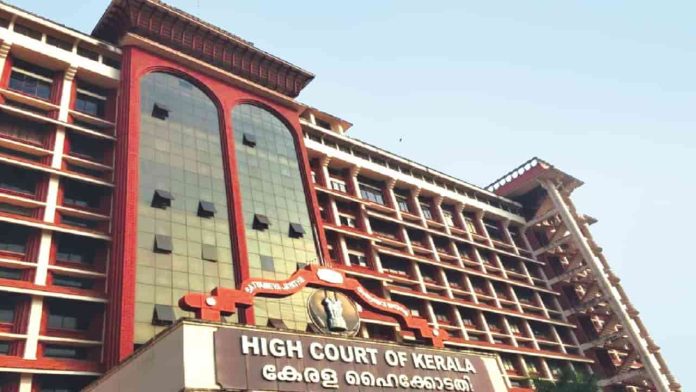It has become increasingly common for social media users and people in general to engage in film reviews. But now there is a new wave of YouTube reviewers and critics whose reviews have hit a raw nerve.
Following a petition from a director, the Kerala High Court recently sought the state police chief’s inputs on how individuals associated with a movie could file complaints against activities aimed at denigrating and tarnishing a movie.
Mubeen Rauf, the director of the film Aromalinte Aadyathe Pranayam, claimed in the petition that there was an organised gang that targeted films with the objective of unfair enrichment, along with blackmail and extortion. He filed the petition in an effort to preserve the credibility and financial stability of the film business.
Justice Devan Ramachandran of the High Court emphasised the negative effects on the film business via uncontrolled vlogger criticism and instructed the government counsel to ask the state police chief for specific instructions on how to prevent the movie industry from being denigrated as a result of a small number of people’s extortion and blackmailing intentions after the bench determined that the situation was serious.
The Court further ordered the police chief to explain how a person or organisation might report illegal and motivated review and other acts. It emphasised the need for careful consideration of the protocol to guarantee that reviews conducted in good faith are distinguishable from those conducted with ulterior motives.
Every movie is an intellectual property, the judge noted. In addition to that, it involves the reputation, blood, sweat and aspirations of many people, not just the producers, principal actors or directors. There should be certain procedures in place where directors, producers or other individuals connected with the film industry can file complaints, triggering an appropriate investigation and the repercussions that follow—both under penal law and under laws relating to cyber crimes.
Shyam Padman, an attorney whom the Court designated as amicus curiae, claimed to have enough evidence to show that there were vested interests who believe they can “make or break movies”.
The central government counsel stated that as this issue affected many other parts of India in addition to Kerala, central government functionaries will also think about it and present proposals to the Court. The Court also sought advice from the state government to prevent the film industry from being disparaged by these people.
The government counsel on October 10 made a submission before the Kerala High Court that the state police chief and the other state machinery will hold discussions with all stakeholders involved in the film industry, including producers, directors and financiers, to formulate modalities of controlling calculated and motivated movie reviews.
Meanwhile, the Kerala Film Producers Association has also filed a petition against film reviews. The High Court verbally asked where the Association was until the court intervened.
While hearing the petition, Justice Ramachandran observed that the Court had not issued any order that there should be no review within seven days of the film’s release. “There is a situation where you can do anything if you have a phone in your hand. Only vloggers who intend to black through their film reviews would fear the court order. The film industry should not be destroyed due to ‘review bombing’,” said the Court.
“Certainly, when a protocol has been called for by the court to be suggested by the state police chief, it is intended as a general one, to apply in future against all illegal tendencies. It surely will take some time to be properly drafted and settled,” it said.
Senior advocate Sudhi Vasudevan, the counsel for the producers’ association, said that the Bureau of Indian Standards published the principles and requirements for the collection, moderation and publication of Online Consumer Reviews. He sought a directive from the Union government to take necessary action.
An essential component of Indian democracy is freedom of speech and expression that is guaranteed by the Constitution. The right to freely generate and express ideas, opinions and criticism promotes public discussion on important societal issues. Movies are also part of this domain due to their sheer influence on society which inherently makes them a subject of discussion and criticism. However, the influence of stardom often hinders this open and healthy discourse that comes in the form of reviews.
In 2021, a film critic named Kamaal R Khan (KRK) got into trouble when he criticised Salman Khan’s starrer Radhe. The battle ultimately dragged him to court, leading to an interim order that restricted him from reviewing any of Khan’s movies until the matter concluded.
The Court case was basically a defamation one where Khan’s legal team contested that the alleged review was against the reputation of the star and should be considered defamatory. Though KRK defended his review as his right to express his opinion, the Court found his reviews leading to an “irreparable loss to the image of the plaintiff in the society.”
—By Abhilash Kumar Singh and India Legal Bureau


